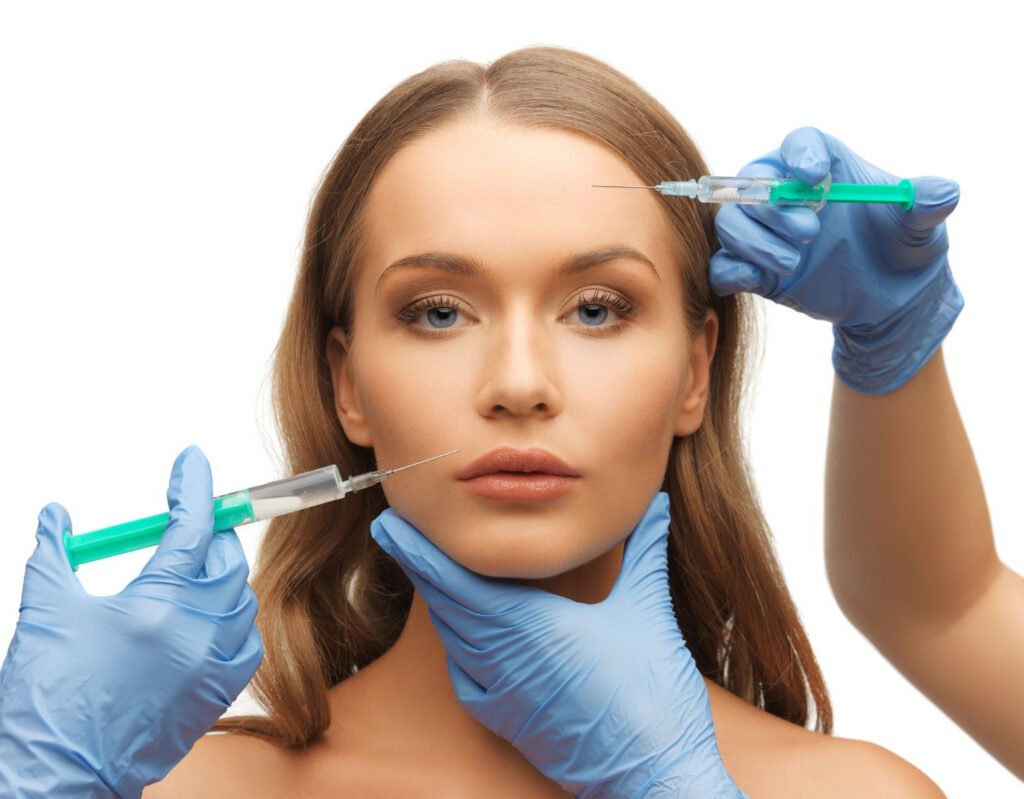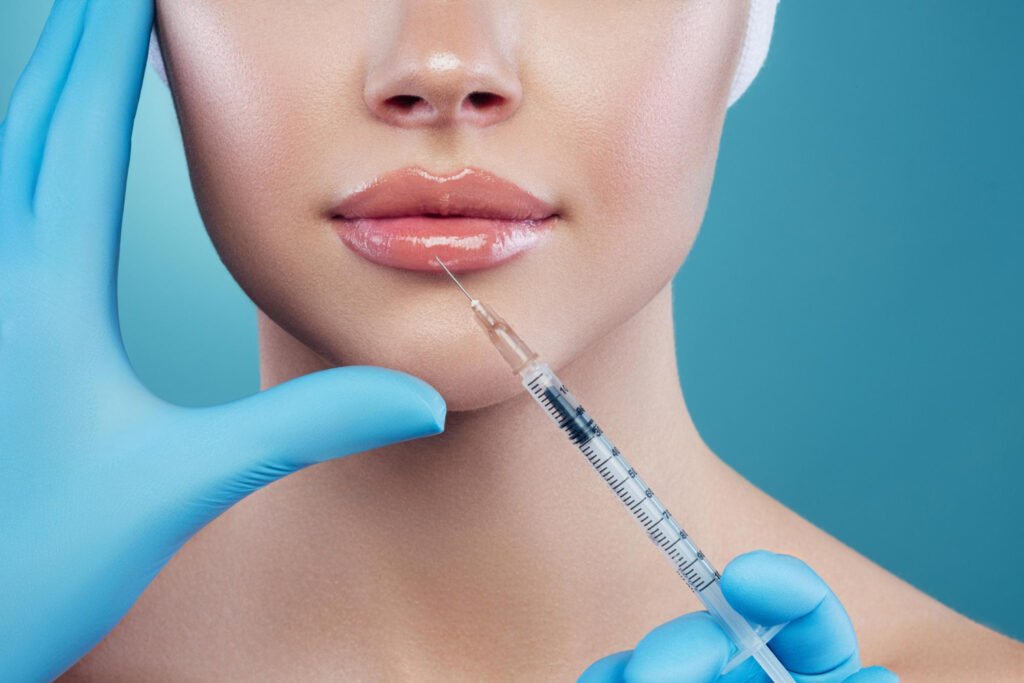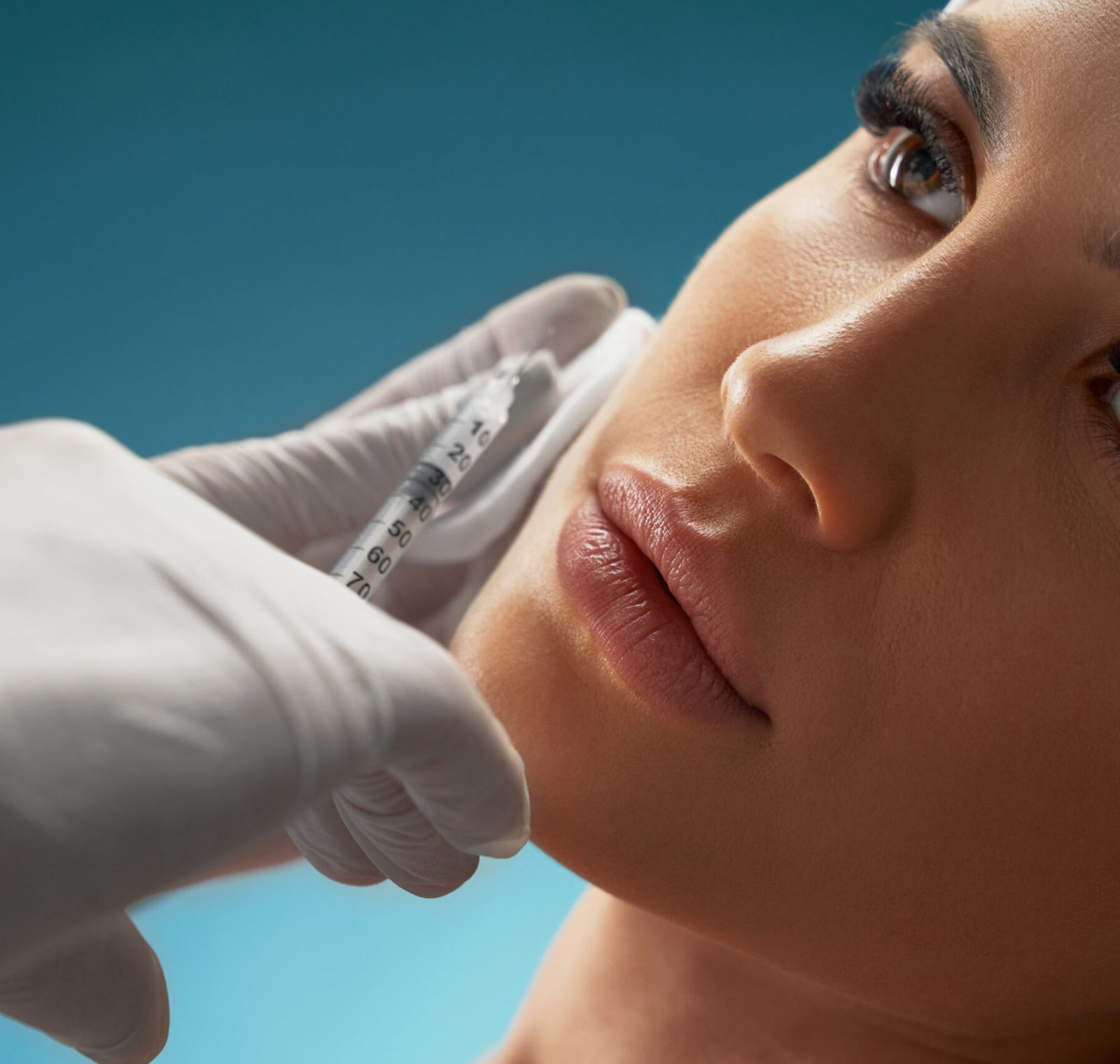Dermal Filler
What is Dermal Filler?
Typically made of hyaluronic acid or other substances, dermal fillers are naturally found in the body and are injected into the skin using a fine needle. Dermal fillers help restore volume to areas of the face that have lost elasticity or have started to sag. The results are instantaneous and can last from several months to a year. Results can vary depending on the type of filler, where its injected and on the client’s skin.
Dermal Filler treatments
- Age and stress related wrinkles and fine lines around the mouth, eyes, and forehead
- Loss of volume and sagging in the cheeks and temples
- Volumize lips and fix asymmetry
- Hollow and dark circles under the eyes
- Marionette lines (lines from the corners of the mouth to the chin)
- Nasolabial folds (lines from the nose to the corners of the mouth)
- Sagging or drooping jowls
- Chin wrinkles or creases
- Uneven or asymmetrical facial features
- Lack of facial symmetry
- Appearance of veins and wrinkles on the hands
- Appearance of neck wrinkles or bands
- Appearance of a square jawline


Benefits of Dermal Filler:
- Non-surgical treatment with minimal downtime
- Immediate results that can last for several months to a year.
- Safe and effective for most skin types
- Can address a wide range of cosmetic concerns, from wrinkles to loss of volume
- Treatments are tailored to your specific needs and goals
- Hyaluronic acid-based fillers can be dissolved if necessary
- Minimal side effects and risks
- Can enhance facial contours and symmetry.
- Restores a natural-looking appearance without looking “overdone”.
- Can improve confidence and self-esteem.
Dermal Filler aftercare:
After treatment, slight redness, swelling, itching and some tenderness at the site of the injections may occur. This is normal and will disappear over the next 7 - 14 days.
- Keep well hydrated for the next 3 days.
- Avoid alcohol 24 hours after treatment.
- Apply ice to the area if tender/ swollen (no more than 15 minutes)
- Avoid strenuous exercise and heat treatments for 48 hours.
- Avoid creams with alpha hydroxy acid or glycolic acid around the area.
- Avoid direct sunlight, wear a high spf sunscreen to prolong the duration of the filler
- If you suffer from cold sores, there is a risk of activating them
- If taking aspirin or other blood thinning medications, you should be aware that there will be increased likelihood of bleeding or bruising at the injection site
- If itching or swelling occur, a general over the counter antihistamine can be taken for a period of one week
- Arnica cream/capsules can be taken to help prevent bruising
- Keep the area sterile and avoid makeup or creams for 24 hours
- Alcohol, smoking and sunshine will reduce the life of the filler.



